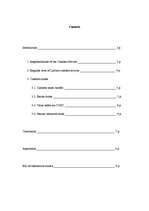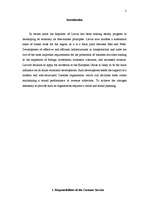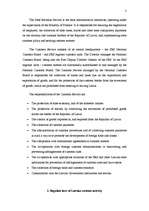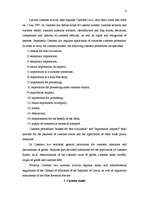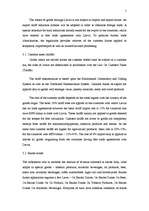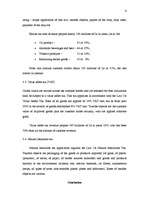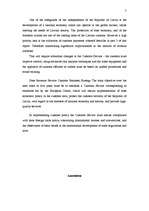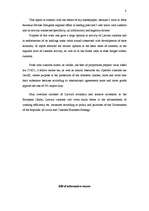| Nr. | Sadaļas nosaukums | Lpp. |
| Introduction | 2 | |
| 1. | Responsibilities of the Customs Service | 3 |
| 2. | Regulate laws of Latvian customs activity | 4 |
| 3. | Customs duties | 5 |
| 3.1. | Customs taxes (tariffs) | 5 |
| 3.2. | Excise duties | 5 |
| 3.3. | Value addet tax (VAT) | 6 |
| 3.4. | Natural resources taxes | 6 |
| Conclusion | 7 | |
| Annotation | 8 | |
| Bill of informative source | 9 |
In recent years the Republic of Latvia has been making steady progress in developing its economy on free-market principles. Latvia now handles a substantial share of transit trade for the region, as it is a focal point between East and West. Development of effective and efficient infrastructures in transportation and trade are two of the most important requirements for the promotion of business activities leading to the expansion of foreign investment, economic contracts, and increased revenue. Latvia's decision to apply for accession to the European Union is likely to be the main influence on its future economic development. Such development needs the support of a modern and well-structured Customs organisation which will facilitate trade whilst maintaining a sound performance in revenue collection. To achieve the changes necessary to provide such an organisation requires a vision and sound planning. …

